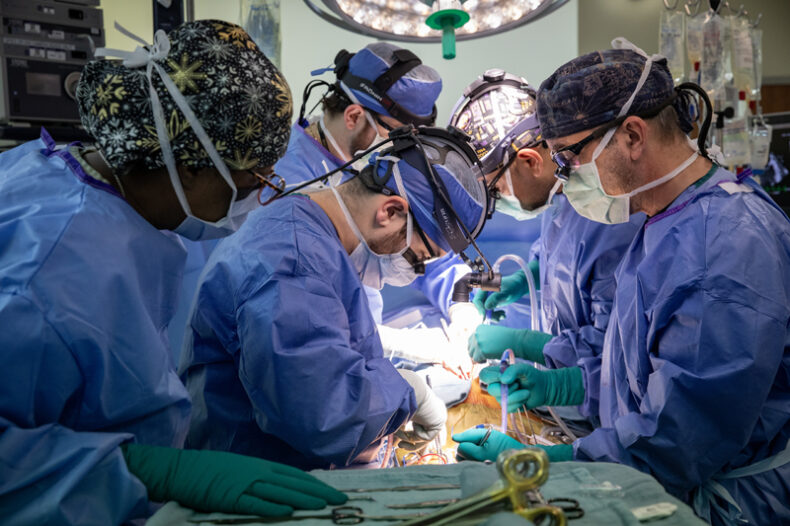Vanderbilt University Medical Center usually performs about 15 heart transplants a year. Since August, however, the program has experienced a surge in the number of procedures.
In five months there have been 19 transplantations, bringing the total number in 2011 to 25 adult heart transplants, with a 100 percent survival rate among adults. In fact, survival has remained at 100 percent over the last three years, said Simon Maltais, M.D., Ph.D., assistant professor of Cardiac Surgery and surgical director of Mechanical Support Devices and Heart Transplantation at Vanderbilt.
“No one expected the rapid growth of this program. It has nearly doubled in a couple of months and we are exceeding the national average in our one-year patient and graft survival rates.
“There is nothing better than to talk about fantastic outcomes. Our numbers may have been small in terms of volume before, but we have always been consistent with excellent survival rates,” Maltais said.

The national average for one-year survival is 85 percent for heart transplantation.
Maltais said that Vanderbilt’s heart transplant program has long had a solid foundation and he hopes to make it one of the best in the country in the next three to five years.
He projects that Vanderbilt will reach at least 35-40 adult heart transplants a year, placing it among the top programs in the nation. It is currently the largest program in the Southeast, he said.
“My goal is to reach these numbers within two to three years,” he said. “I want to bring this program to where we are one of the most competitive transplant programs in the country.
In an effort to bring Vanderbilt among the nation’s elite heart transplant centers, Maltais has also placed an emphasis on creating a fully integrated ventricular assist device (VAD) program. Currently, the center uses the devices as a bridge to transplant. There is growing interest in obtaining certification to implant the devices as a destination therapy for patients for whom transplantation is not an option.
“There is a lot of excitement around building this program,” said Maltais. “We are pretty happy where we are right now. We are working on our outreach and education programs as well as looking at the therapies and services we offer our patients. We are looking forward to where our program is heading.”
Vanderbilt Transplant Center Director Seth Karp, M.D., attributes the ongoing success of the program to the dedication and clinical excellence of both Maltais and Mark Wigger, M.D., medical director of heart transplantation as well as surgeons Rashid Ahmad, M.D., and Steven Hoff, M.D.
“The outstanding experience of the team combined with strong institutional support and innovative approaches allow us to continue to provide the absolute highest quality of care to our patients,” said Karp.

















